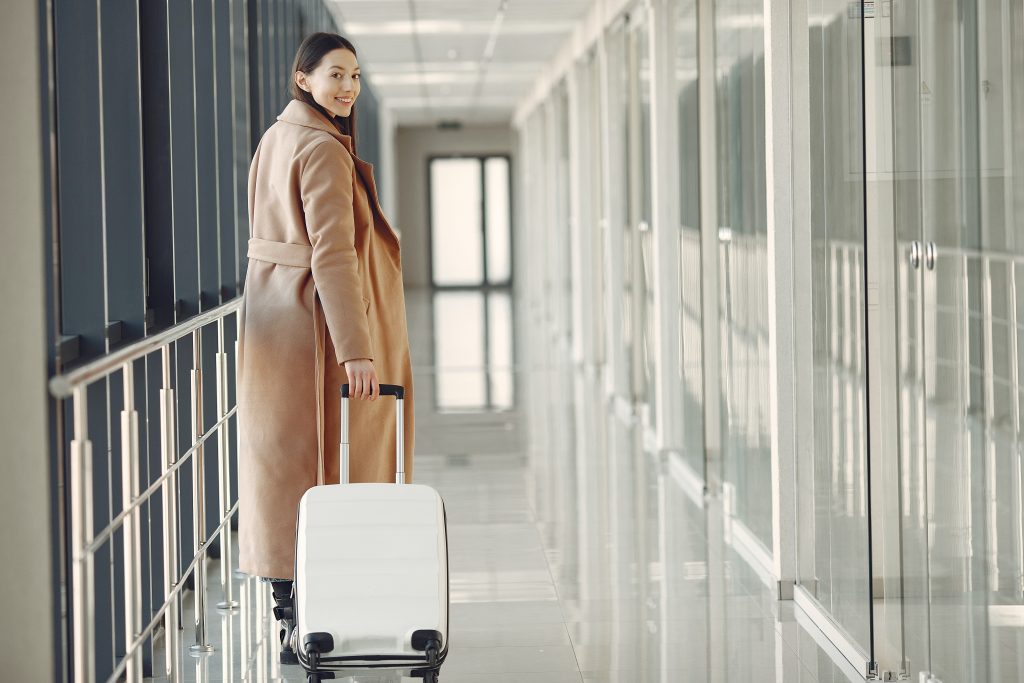5 Changes to Make to Your Travel Policy in 2022
By: Kjersten Anderson Date: April 21st, 2022
By: Kjersten Anderson Date: April 21st, 2022

According to a Wakefield and Concur study, 68% of business traveler respondents do not want their company to return to their pre-COVID-19 policy. The pandemic led to new ways of conducting business for the corporate travel industry.
Travel managers have more to monitor, health and safety concerns are of greater importance, new technology has entered the market, and budgets are tight. Changes like these rendered pre-COVID travel policies outdated and irrelevant.
However, business travel is picking up and will fully recover by 2025, according to GBTA. So, as travel increases, companies need to revisit and reconstruct their travel policies to ensure the safety of travelers and the effectiveness of their travel programs.
We identified five critical changes to make to your travel policy in 2022.
It’s time to update your travel policy to fit the new business travel environment. Here are the five areas to make changes to your travel policy.
If you’re looking to refresh your travel policy, start at the beginning with the approval process. The pre-trip process will look different for every company depending on your size, goals, and corporate culture. But it’s what can set up your travel program for success.
Look at how your team’s process works and identify where the inefficiencies are. Reconsider your procedures for approving trips, your layers of approval, and the type of travel you allow.
Planning ahead and streamlining your approval process is the best way to mitigate risks, make the travel experience as painless as possible, and ensure your program is effective.
Now more than ever, with all the added risks for you and your employees, it’s essential to put safety at the core of your travel program. With your travel policy update, take a look at what you currently have in place and identify what’s lacking.
Reevaluate your duty of care to verify that your travelers are safe at all times. Consider safety solutions that help you track employees throughout their trips, offer them 24/7 customer support, and manage emergency responses.
When cancellations, changes, missed flights, accidents, sickness, and other events happen on business trips, your policy should ensure your travelers know what to do and who to contact.
An automated travel policy can make your team’s life easier by reducing confusion among your team and increasing compliance.
You can automate your booking process, what business class and upgrades are allowed, max cost per flight, how much they can spend on hotels, what types of car rentals are allowed, and your expense process.
By setting up an automated travel policy, you can save money, simplify the approval process, readily adapt to changes in regulations and restrictions, save time and energy of team members, and encourage travelers to book inside of policy.
Flexibility is now a common theme when discussing travel policies. Travelers desire more autonomy and the uncertainty and constant changes with the pandemic showed us the need for flexibility in travel policies.
With travel restrictions changing so often, update your travel policy to allow travelers to alter or cancel trips as needed. This will give you and your travelers peace of mind now and in the post-pandemic world.
Travelers want to book and adjust their trips based on their preferences. So, by increasing flexibility in your policy, you can also improve your travelers’ experience and satisfaction.
With the recent volatility of the travel environment, think about incorporating travel alternatives into your policy. Over the last couple of years companies have focused on ground transportation, like cars and trains. Shifting to other travel methods allowed those brands to continue their travel during the pandemic with more ease.
Decide whether expanding transportation guidelines for shorter trips works for your travelers and travel program. If you add these options, consider the new rules on mileage reimbursement, trip duration, and any changes to car rental policies.
In addition to transportation, you may want to expand the lodging options in your travel policy. Hotels are the main choice for business travel lodging, but accommodation choices like Airbnb and Vrbo are becoming more common.
Analyzing your travel policy data and employee feedback assists in identifying which alternatives will be the best fit for your company. Adding these options can increase traveler satisfaction, enhance cost savings, and be a perk to help attract and retain talent.
Business travel was brought to a halt when the pandemic started. Travel policies at that time became outdated almost instantly. If you haven’t revised your travel policy since COVID-19, it’s time for a change.
You can learn more about travel policies on the FerskTech blog and our resources page.
At FerskTech, we’re developing a revolutionary platform that empowers travel managers and suppliers with multi-supplier sourcing and real-time data analysis for enhanced program oversight, decision-making, and program savings.
To learn more about our tools, head to our platform page or contact our team.